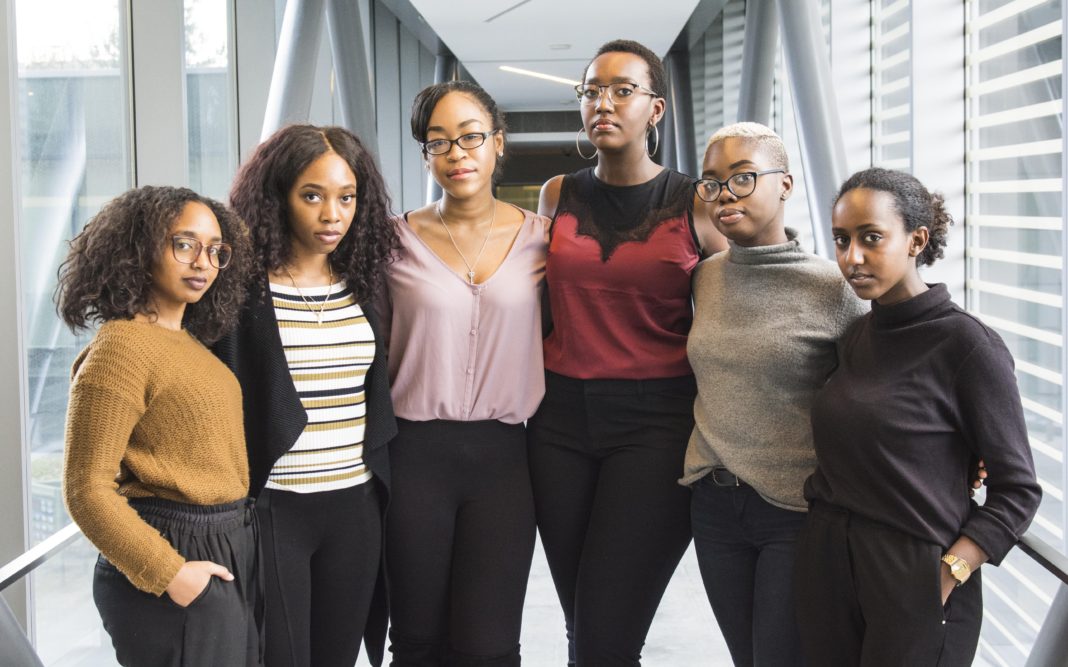Since the University of Waterloo’s Equity Office has come to fruition in 2013, have they been adequately fulfilling its key functions of addressing systemic issues on campus?
Fiqir Worku and Elisa Umuhoza, student executives of the UW Black Association of Student Expression (UW BASE) believe more work needs to be done.
UW BASE first contacted the Equity Office back in Dec. 2015, when Sandra Osazuwa, the UW BASE President at the time, emailed the office about some concerns she had with the way the institution addressed issues relating to race on campus.
“I find it difficult to understand how a Canadian university’s equity office lacks something as fundamental as providing racial diversity awareness and support,” Osazuwa said in her email.
UW BASE also wanted to collaborate with the Equity Office in creating diversity initiatives to address these issues. Improving the structure of counselling services, sensitivity training for BASE execs, organizing campus-wide conferences to shed light on the experiences of students of colour, and more funding for the student association itself were some of the initiatives that BASE wanted to venture in.
Fast forward to Aug. 3, 2016, when UW BASE was able to sit down and meet with former UW Director of Equity, Mahejabeen Ebrahim.
According to Worku, the meeting proved to be disappointing.
“As we were discussing what we found and how we wanted to collaborate [with] the Equity Office and see it be an active service on campus, the director of equity encouraged us to collect the statistics,” Worku said.
“It was just disappointing because, as a club, we do not have the resources, we do not have the manpower or anything to fulfill this task and that was the main reason for coming to the Equity Office to begin with.”
According to Worku, due to being a student association rather than a service, BASE receives a funding of $75 per term.
“They gave us their time and their attention and they heard us out but nothing was done beyond that,” Umuhoza said on the matter. “They did hold a panel discussion on racism and mental health [in Jan. 2017] … but nothing was really done further.”
Both Worku and Umuhoza emphasized the need to have these initiatives created for a university institution.
“We’re not just saying we want this for the sake of having it,” Umuhoza said. “We have observed that there is [support needed] for students on campus.”
Umuhoza listed the series of shootings of black men in the United States in 2015 as an example. UW BASE also made a statement on a locally racially-driven hate crime incident back in April 2016, where a racial slur was spray painted on a Waterloo home on Hazel Street.
In the meantime, Umuhoza and Worku have said that UW BASE have been navigating students to the services under Wilfrid Laurier University’s (WLU) Diversity and Equity Office.
WLU, a university of more than 19,000 students, currently has two Diversity and Equity Offices for their Waterloo and Brantford campuses, with two directors of equity for each campus. WLU also has an Association of Black Students (ABS), a student-run service on campus.
“Our focus is to spread awareness about the experiences of students of colour to the campus with the goal of ensuring all members of the Laurier community are well-informed and have a fulfilling university experience,” said the description of the Association of Black Students on WLU’s website.
In comparison, the University of Waterloo has one Equity Office and one director of equity for all four campuses with a total population of more than 30,000 students. Unlike WLU’s Association of Black Students, UW BASE is considered a student-run club and therefore receives a fraction of funding in comparison to a campus service.
“At the end of the day, we — [the student association] — were struggling as well,” Umuhoza said when asked about the reason for reaching out towards WLU services instead of UW services.
Diana Parry, UW Vice-President of Human Rights, Equity and Inclusion spoke to Imprint about the dialogue between UW BASE and the former director of equity.
“The University of Waterloo takes issues connected to equity, inclusion [and] diversity really seriously,” she said.
Besides overseeing equity, inclusion, and diversity on campus, Parry explained other responsibilities of her current role.
“Reporting to me is the director of equity, sexual violence response coordinator, and the centre for conflict management and human rights,”she said. “In addition to that I am overseeing the development of the Indigenization strategy.”
Parry was first appointed in this VP role in July 2017 and was not aware about the initial dialogue between Ebrahim and UW BASE.
“Even after I took on this [role] I wasn’t aware of [the situation],” she said.
Parry also said that the institution doesn’t collect demographic data on students, staff and faculty prior to entering campus.
“After we have people on campus we ask them to voluntarily fill out a survey so we get a sense of our campus,” she said.
In terms of the Equity Office collecting data, it would depend on the particular case being addressed, according to Parry.
“So for example the [Canadian Research Chair] program that we have on campus … that’s a government mandated program and associated with that the Equity Office was [in] charge of collecting data of that program,” Parry said.
When asked whether it was appropriate for UW BASE student executives to be focusing on finding the data Ebrahim suggested, Parry said “it would depend on what type of data they’re looking for and what they need it for.”
“In the nature of this particular situation, I would be really interested in hearing their needs and talking about how we can work collaboratively together,” Parry said.
Parry also said she has reached out to the students of UW BASE but has yet to hear a response from them.
Currently the director of equity position is vacant, with the responsibilities being split up by other members of the equity office, including the UW VP of human rights, equity and inclusion herself.
According to Parry, in addition to the director of equity position, a sexual violence response coordinator, an administrative position, administrative assistant, and a co-op student position currently make up the structure of the Equity Office.
The current responsibilities of the director of equity is currently being reassessed as well.
“When we hired into [the director of equity] position four years ago, the structure of the university was different,” Parry said. “So for example, we didn’t have my position [as well as the sexual violence response coordinator position] … I think that with the new structure in place with my portfolio, and the different positions that report up under me we have a new sort of structure in place that will help facilitate some of the work.”
Parry also said that because the reassessing is in its early stages, no specific timeline of restructuring can be given out.
“We’re going to make sure that we do it well and take our time to really look at the needs and get feedback and consultation around the position,” she said. “It’s definitely something that we have started, and we’ll continue in the new year … Any feedback that we can get on this front is more than welcome.”
In terms of feedback, both Umuhoza and Worku believe the office needs to focus on its campus presence.
“[The Equity Office] needs to be active in promoting equity matters and possibly expanding to diversity as well,” Worku said. “It’s mostly just the lack of presence and the lack of support [that] the Equity Office provides to … us and as the black association. That’s just something we’re looking for.”
“This is not an us against them. We’re on the same boat, we’re all part of the same school,” Umuhoza said. “I love Waterloo, I love getting my PACS degree from Conrad Grebel. So we’re just trying to better the dialogue and better the support for students because we’re all here for a reason. We’d only do this because we care about the school and we care about the students that are coming into the university.”
Pictured above: The UW BASE student executives. From left to right — Iman Abbaro, Latasha Nelson, Destieny Burton, Elisa Umuhoza, Victoria Rodney, and Fiqir Worku. Photo by Ju Hyun Kim
































